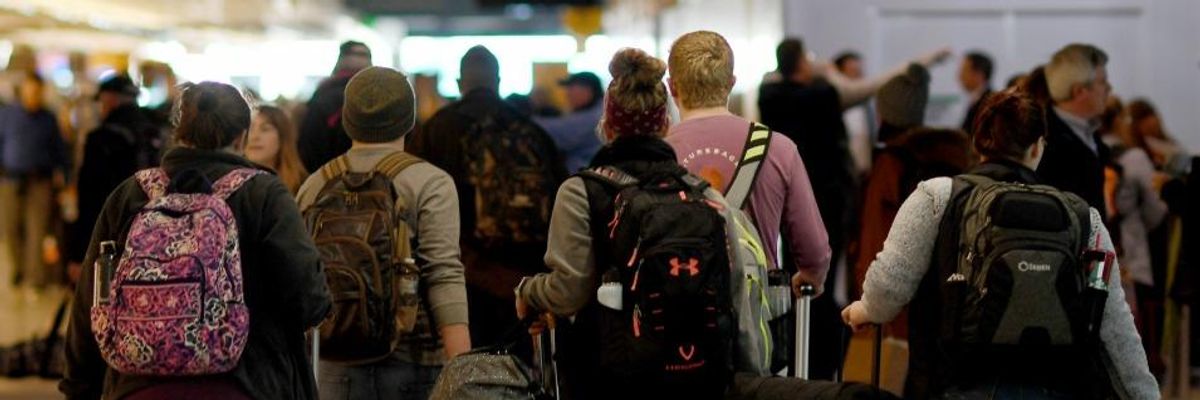As the coronavirus pandemic lays bare a number of major weaknesses in the U.S. medical system, one university in Norway went as far on Sunday as to specifically advise all students studying abroad to come home in order to avoid having to rely on American healthcare if they become ill.
The Norway University of Science and Technology (NTNU) posted an advisory on its official Facebook page Sunday warning that students staying in "a country with poorly developed health services and infrastructure and/or collective infrastructure" should return home as soon as possible.
"For example, the U.S.A.," school authorities wrote.
NTNU edited the post to delete the reference to the U.S., but not before many Americans chimed in on its Facebook page to express agreement with the warning. The post was shared widely on social media.
NTNU's warning came as the U.S. House passed legislation to provide free testing for the coronavirus disease, officially called COVID-19, for all Americans--but the Republican-led Senate still must pass the bill before it's signed by President Donald Trump.
Reports have mounted in recent weeks about Americans reporting typical COVID-19 symptoms--including fever, shortness of breath, and coughing--only to be denied a test unless they meet a stringent set of criteria which is being used in many states.
Although "community spread" of the virus has now been widely reported, many states, counties, and cities are not allowing testing for anyone who hasn't traveled recently or come into contact with someone who's tested positive for COVID-19.
"Testing rules are so strict that doctors may not notice a community outbreak until it's too late," Robinson Meyer wrote in The Atlantic on Friday.
Anthropology researcher Chenchen Zhang reported on Twitter last week that a Chinese national living in Massachusetts was refused coronavirus testing in the U.S., and flew to China, the epicenter of the pandemic, in order to get care.
The failure of local, state, and federal governments to track the spread of the illness may result in overwhelmed hospitals and medical staff in a country which has fewer hospital beds per capita than most other developed countries. According to Stat News, based on the current rate at which the virus is spreading, all U.S. hospital beds could be filled by May 10.
As NTNU warned about the United States' poorly developed "collective infrastructure," the for-profit healthcare sector has left many patients with financial burdens after being treated for COVID-19. The New York Times reported late last month that some patients have faced surprise medical bills amounting to thousands of dollars following their government-mandated quarantine.
"In America, and only in America among developed countries, do patients risk thousands of dollars in medical bills by seeking help in a crisis," wrote Dylan Scott at Vox.com Monday.
Norway has reported just over 1,250 coronavirus cases and three deaths as of Monday morning. The U.S. has reported nearly 3,600 cases and 66 deaths, with the number of new cases growing rapidly in recent days.
Norwegian Minister of Health and Care Services Bent Hoeie told Reuters last week that the country "has conducted a comparatively larger number of tests than many other countries," while the U.S. has alarmed the international community by testing only about 13,000 people total for COVID-19. South Korea, by contrast, was testing nearly 20,000 people per day as of Friday.




